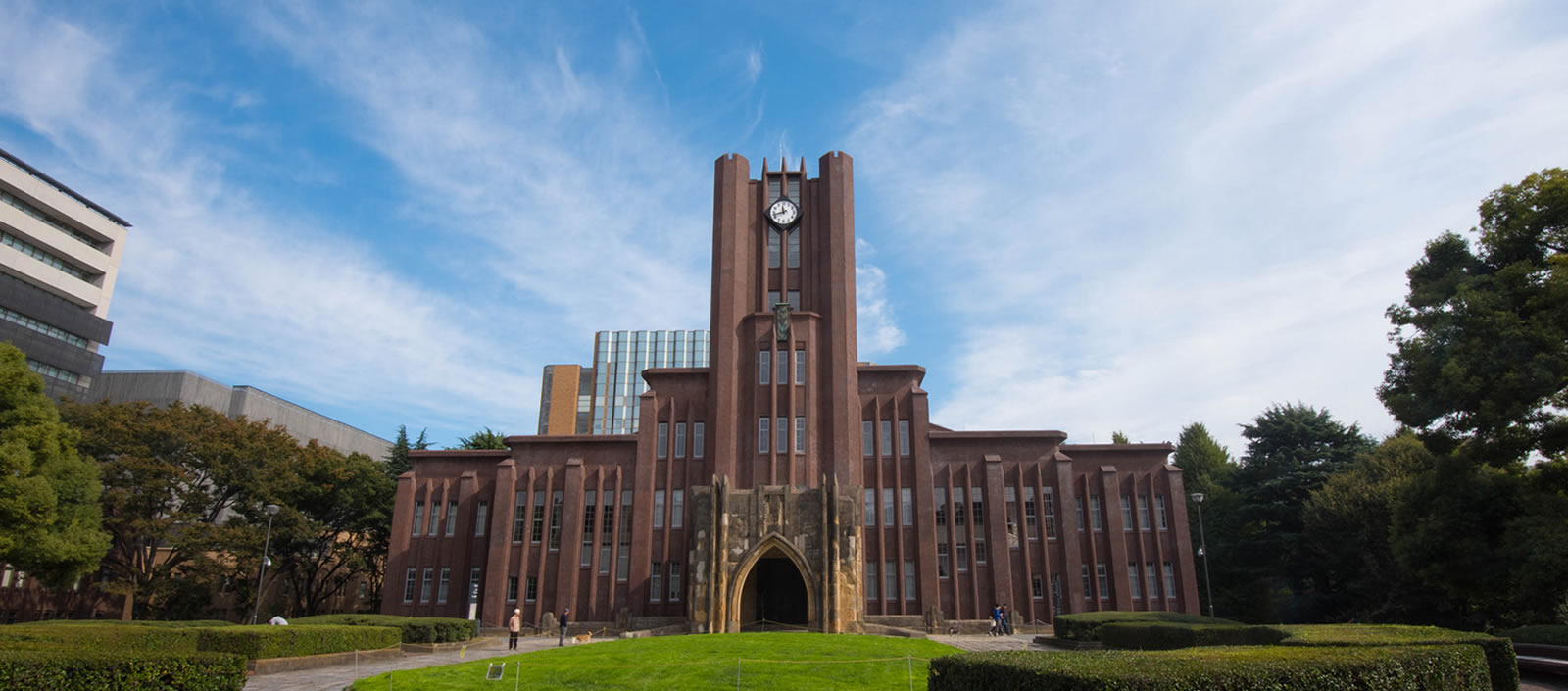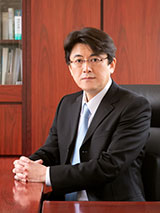A Message from the Dean
The history of the Graduate School of Science and Faculty of Science at the University of Tokyo dates back to 1877 (Meiji 10). Currently, the Faculty of Science comprises ten departments: Mathematics, Information Science, Physics, Astronomy, Earth and Planetary Physics, Earth and Planetary Science, Chemistry, Biophysics and Biochemistry, Biological Sciences, and Bioinformatics and Systems Biology. The Graduate School of Science comprises five departments: Physics, Astronomy, Earth and Planetary Science, Chemistry, and Biological Sciences.
The research areas of the Faculty of Science and the Graduate School of Science range from the microscopic scale of elementary particles, atoms, and molecules to the macroscopic scale of cells and living organisms, from the Earth’s interior to the polar regions, and extend to the solar system, galaxies, and the farthest reaches of the universe. They also cover the longest span of time, from the creation of the universe during the Big Bang to the past, present, and future. We humans are fascinated by the unexplained mysteries of the natural world; we want to solve these mysteries, and this is what the members of the Faculty of Science and the Graduate School of Science are dedicated to doing through their research. The discoveries and scientific technologies that emerge from these endeavors can contribute to industrial advances and lead to improvement of people’s lives. Scientific research can also hold the potential for progress in cutting-edge fields such as drug discovery, materials science, AI, the next generation of mobile communication systems, and quantum technology, and in fact has yielded numerous patents and other forms of intellectual property. For example, Kikunae Ikeda (1864-1936), who became a professor in the Department of Chemistry of Tokyo Imperial University in 1901, not only conducted fundamental research in physical chemistry but also in 1907 discovered the main ingredient of the widely used umami seasoning, monosodium L-glutamate, which is sold under brand names such as Ajinomoto. Professor Ikeda is now recognized as one of the “Ten Japanese Great Inventors”. The professor’s office which Professor Ikeda used before he retired is still in use at the University today. In another field of science, it is known that rising temperatures caused by increases in carbon dioxide concentration in the atmosphere threaten the future of our planet. Even during a global crisis such as the one we are currently facing, the research conducted at the Faculty of Science and the Graduate School of Science is making the greatest impact. In fact, Professor Syukuro Manabe, who received the Nobel Prize in Physics in 2021, predicted that climate change would occur as a result of elevated levels of carbon dioxide in the atmosphere. We need to address numerous global challenges if humanity is to better manage our Earth, and scientific research is key to tackling these challenges. This year, the telescope at the University of Tokyo Atacama Observatory (TAO) on the summit of Cerro Chajnantor in Chile will begin gathering data in earnest, promising new discoveries in the field of astronomy.
I believe that human intuition driven by curiosity and acute insight, which are unaffected by external influences, can ultimately discover the truth. It is indeed the undergraduate and graduate students who are currently immersed in their studies and research that will unravel the laws of nature and solve future global challenges. It is important for students to acquire a high level of expertise in their individual research fields, and then to gain “awareness” by interacting with students with expertise in other fields. To that end, we strongly encourage inter-disciplinary interaction, international exchange, and industry-academia collaboration. I believe that my mission as Dean of the School of Science is to provide opportunities for researchers and students to gain such “awareness”. For example, with the aim of encouraging the global circulation of talented individuals, we offer several initiatives, including overseas exchange opportunities and the University of Tokyo Joint-Supervision PhD Double-Degree Program (University of Tokyo Double-Degree Program). These initiatives are all designed to provide opportunities for gaining “awareness”. We are also strongly committed to the promotion of diversity, enabling new sensibilities such as gender equality to be cultivated and shared.
As stated in the Charter of the Graduate School of Science at the University of Tokyo, it is the mission of the School to teach the principles and methods of science to the young people who will lead the next generation, cultivate individuals who can acquire the wisdom and tools to solve future problems and contribute to the sustainable and peaceful development of human society, to make our educational and research results available to the public and endeavor to prevent such results from being used to harm society and the global environment, and that they contribute to the development of society and culture and the continued existence of the human race.



